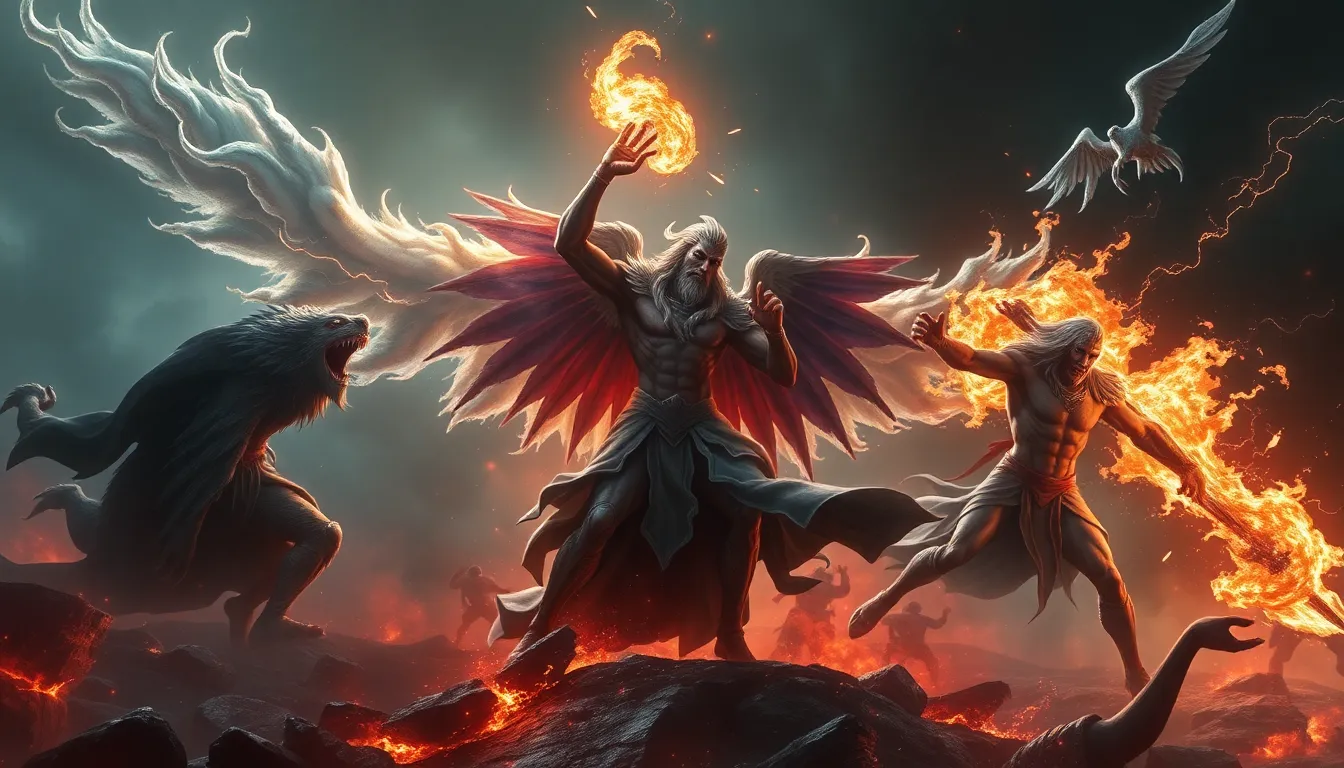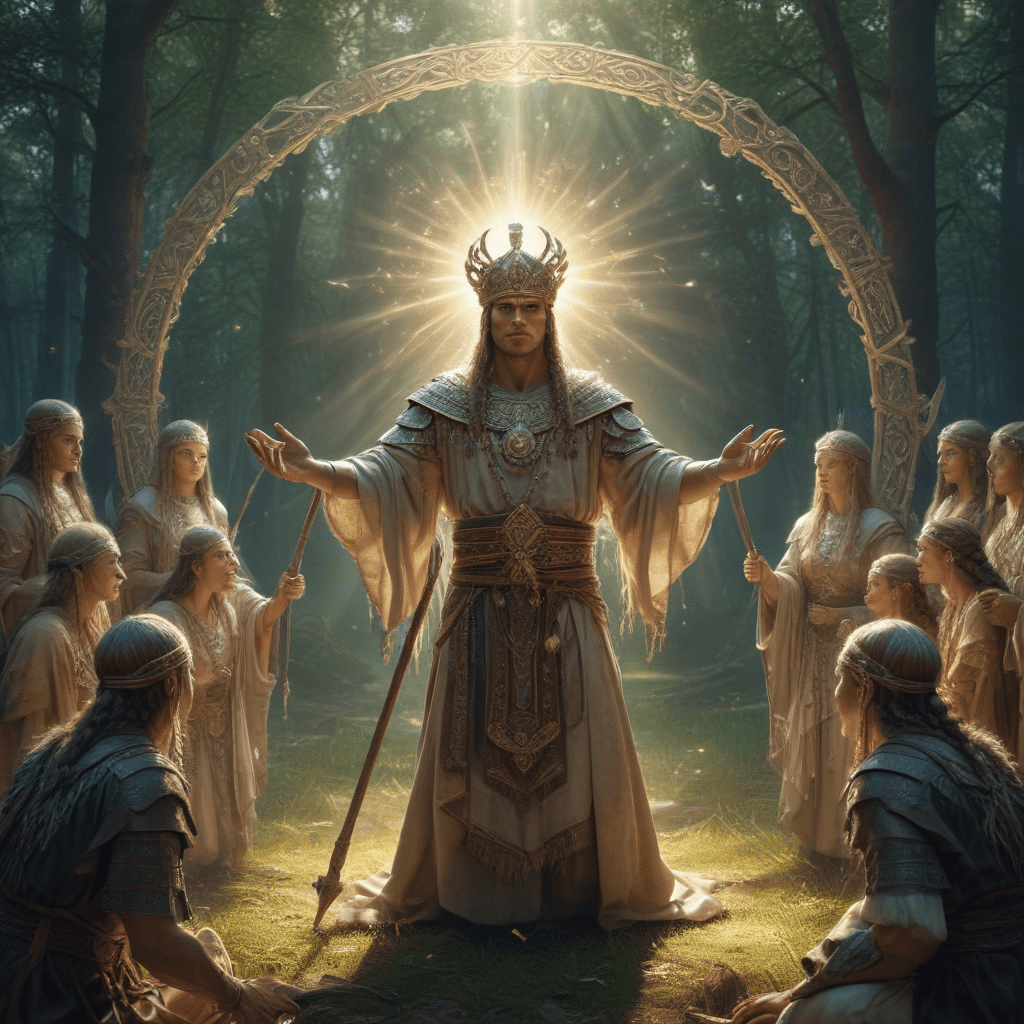The Cosmic Journey: How Creation Myths Guide Our Understanding
1. Introduction
Creation myths are traditional stories that explain how the universe and humanity came into existence. These narratives are fundamental to various cultures, serving not only as explanations of the origins of life but also as reflections of the values, beliefs, and experiences of the people who tell them. They provide insight into humanity’s quest for understanding and meaning in an often mysterious world.
The importance of creation myths extends beyond mere storytelling; they are foundational elements of cultural identity. They influence religious beliefs, social structures, and personal worldviews. This article aims to explore the multifaceted roles of creation myths, examining their historical significance, thematic elements, and their evolution over time.
2. The Role of Creation Myths in Human Culture
Historically, creation myths have played a vital role in shaping human culture. From ancient civilizations to modern societies, these narratives have provided frameworks for understanding the universe and humanity’s place within it. Creation myths are often tied to rituals, ceremonies, and communal identities, reinforcing social cohesion and cultural heritage.
When comparing creation myths across different cultures, we find both unique elements and shared themes. For instance, many cultures feature a supreme being or deity responsible for creation, while others emphasize the role of chaos and order in the formation of the universe. The psychological and social functions of these myths are profound; they provide comfort, instill moral values, and help individuals navigate life’s uncertainties.
3. Major Themes in Creation Myths
Several major themes recur in creation myths worldwide:
- Chaos and Order: Many myths illustrate the transition from a chaotic state to a structured cosmos, symbolizing the human desire for order in the universe.
- The Role of Deities: Creation often involves gods or supernatural beings who shape the world, reflecting humanity’s understanding of divine intervention in daily life.
- Light and Darkness: The symbolism of light and darkness is prominent, representing knowledge, goodness, and creation versus ignorance and chaos.
4. Comparative Analysis of Creation Myths
Notable creation myths such as the Biblical Genesis, the Babylonian Enuma Elish, and the Maya Popol Vuh offer rich narratives that reveal both similarities and differences in their storytelling approaches. For example:
- Genesis: This myth emphasizes a singular, omnipotent God creating the world in six days, culminating in the creation of humanity in His image.
- Enuma Elish: This Babylonian narrative presents a pantheon of gods and the violent struggle between them to establish order from chaos.
- Popol Vuh: The Maya creation story details the gods’ experimentation with creating humanity, highlighting the relationship between the divine and human beings.
The cultural significance of these myths lies in their unique interpretations of existence, morality, and the divine, each resonating deeply within their respective societies.
5. Creation Myths and Cosmology
Creation myths significantly shape our understanding of the universe, often reflecting the cosmological views of the cultures from which they arise. The intersection of mythology and science reveals parallel narratives in cosmology, where ancient stories can sometimes foreshadow modern scientific theories about the universe’s beginnings.
For instance, the Big Bang theory, which describes the universe’s expansion from an initial singularity, can be likened to many creation myths that speak of a primordial chaos transforming into an ordered cosmos. The impact of creation myths on both ancient and modern scientific thought is profound, as they have historically provided frameworks for inquiry and exploration.
6. The Evolution of Creation Myths Over Time
Creation narratives have evolved significantly over time, influenced by historical shifts, philosophical advancements, and scientific discoveries. As societies progress, their myths adapt to new understandings of existence. The Enlightenment, for example, brought about a gradual shift from religious explanations to more secular views of creation.
In contemporary culture, creation myths are not just relics of the past; they continue to adapt and resonate, often blending with modern narratives about technology and science, showcasing the enduring nature of these stories.
7. Creation Myths in Literature and Art
The representation of creation myths in literature and art is vast and varied. Many poets, novelists, and artists have drawn inspiration from these narratives, exploring themes of origin, existence, and the human condition. Prominent works inspired by creation myths include:
- Paradise Lost by John Milton: A poetic retelling of the Genesis creation story, exploring themes of free will and rebellion.
- The Divine Comedy by Dante Alighieri: While primarily a journey through the afterlife, it reflects on creation and divine order.
- The Creation by Haydn: A musical composition that dramatizes the biblical creation story through orchestral and vocal performance.
These works illustrate how creation narratives can transcend their origins, influencing diverse forms of artistic expression.
8. The Psychological Impact of Creation Myths
Creation myths play a significant role in shaping individual and collective identities. They offer frameworks for understanding existence and can serve as sources of comfort during existential crises. The psychological theories surrounding myth-making suggest that these narratives fulfill deep-seated human needs for meaning, coherence, and identity.
By engaging with creation myths, individuals can explore their beliefs and values, helping them navigate the complexities of life and their place within it.
9. The Future of Creation Myths in a Globalized World
In our increasingly globalized world, traditional creation myths interact with modern narratives, leading to a dynamic interplay between the two. Technology and media play crucial roles in the evolution of these myths, enabling the dissemination and reinterpretation of stories across cultures.
As we move forward, it is likely that creation myths will continue to evolve, adapting to contemporary societal changes and scientific advancements, while still retaining their core functions of providing meaning and understanding.
10. Conclusion
In summary, creation myths serve as vital narratives that guide our understanding of existence and the universe. They reflect our cultural identities and offer insights into the human experience. The exploration of these myths reveals their enduring relevance, encouraging us to reflect on our personal and cultural narratives surrounding creation.
As we continue to seek answers to the profound questions of life, creation myths remind us of the rich tapestry of stories that shape our understanding of the cosmos and our place within it.




